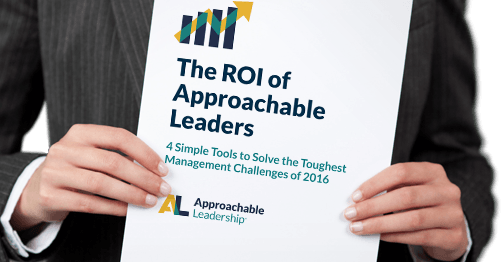Managing Millennials is a hot topic. Just ask Google: there are nearly one-million web pages devoted to “managing millennials.” I’ve got some great tips. But before we get to that, take this quick quiz:
QUIZ: Match the religious denomination with the best description of its typical member:
| Ambitious and Idealistic? | Roman Catholic |
| Skeptical and Self-Reliant | Southern Baptist |
| Tenacious and Entrepreneurial | Lutheran |
Do those questions make you uncomfortable? I hope so. What if you replaced the religious denominations with different racial groups. Outrageous, right? Of course it is. That’s because labeling people this way is ridiculous.
What if I changed the religious denominations in the example above to generations like Baby Boomers, Generation X or Millennials? Do you feel the same outrage?
The stereotypes above come from a report on managing Millennials. In this report Millennials are labeled tenacious and entrepreneurial. Generation X is labeled as skeptical and self-reliant. Baby Boomers are labeled ambitious and idealistic.
Let me ask a couple more quiz questions. Do you know any ambitious or idealistic Millennials? How about entrepreneurial Generation Xers? Tenacious Baby Boomers? I thought so.
Stop Generational Profiling
Targeting someone because of their race is called profiling. Targeting someone based on their age is no different. It’s called it Generational Profiling and we are in the middle of an epidemic.
For some reason people who should know better have built a cottage industry around teaching people how to get all these generations to work together. However, most of what I’ve seen about managing Millennials is a hodgepodge of worse than useless advice. It focuses managers on exactly the wrong things. It focuses on the often meaningless differences between people, instead of looking at the massive number of things we have in common.
In her book Retiring the Generation Gap Jennifer Deal discusses a study of 3000 people across generations. Her finding is that the differences between generations are minor compared to the things we all share in common. For example, all three generations want to feel respected at work. They want leaders they trust. They dislike change (yes, even Millennials). They want to learn and receive feedback.
Don’t get me wrong. I think diversity training and helping people from different backgrounds work together is really important. I am also not blind. Younger people can differ significantly from older ones (the older I get the more I’m becoming aware of this). I’m pretty sure virtually every person reading this article has at one point in their lives complained about how the generation before or after them just don’t “get it” (and those other generations say the same thing about them). But is that helpful to leaders? No.
Tips for Managing Millennials (and Every Generation)
This is why I encourage leaders to forget about generational differences. That’s right. Completely ignore them. Instead of looking for and trying to manage around supposed differences, ask these three questions (and listen carefully to the answers):
- “Do you have what do you need?” Instead of going through your list of what Millennials want (or Boomers or Xers for that matter), just ask if they need something. This simple question is very powerful (check out our Three Questions Tool to learn more about different ways to use this question). The best part? You don’t have to guess about whether you’re getting it right. People will tell you what they need if you ask.
- “What would make work better?” Instead of focusing on generational stereotypes, focus on constraints. If you try to structure your business to appeal to Generations X, Y or Z, you may end up implementing practices or technologies that can kill your company (even if the generation du jour loves the new program). Instead of focusing on generational differences, focus on bottlenecks in your business. This moves attention to where it is most needed. What you’ll find is that the generational cadre will come up with practices or tools they’re comfortable with – all the while you can be reassured with the knowledge that business is moving forward.
- “Where are you going?” By taking an active interest in the development of top talent, you keep folks engaged and happy to go above and beyond in their current role. They do so because they see that as the quickest way to advance to their next step within the company. I even teach clients to turn around “hard-case” employees who are upset with pay or benefits by switching those conversations over to development opportunities. Again, this has nothing to do with generational differences and everything to do with individual uniqueness.
- Focus on individuals – not generations. One of the biggest complaints employees make in our employee engagement research is that companies don’t provide individualized praise, feedback, and coaching. This is true across every generation. If you want to truly engage employees, don’t try to pigeon-hole them into generational boxes; instead, focus on each person as a unique individual. When people feel like they aren’t valued as individuals they get demoralized. It’s when they believe you care about them as a person that they will run through a brick wall for you.
The good news is that Approachable Leaders naturally get this right. It doesn’t require stereotyping or mind-reading. When you focus on being available, understanding, and receptive to employees they will tell you how to engage them in their work. The great news? This is so much simpler than trying to figure out what generational bucket someone fits in.











